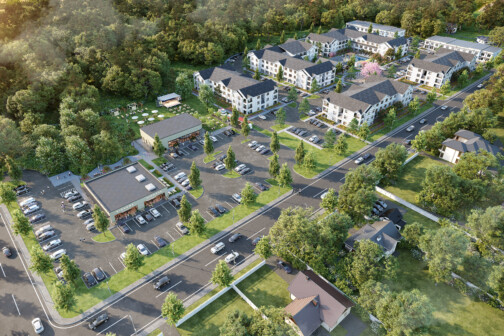As we bicker back and forth about tearing down roads, building toll roads, managing sprawl, creating density, improving public transit, and all the hot button issues that will affect mobility in DFW — and therefore dictate what kind of city Dallas evolves into — changes are afoot that may throw all of our assumptions about the future out the window.
How so? Well, check out this new report from New York University’s Rudin Center for Transportation Policy & Management. In it, planners imagine how the introduction of automated transportation – Google cars, driverless trucks – will affect mobility circa 2030. Their conclusions are a bit wild and futuristic, but as a thought experiment, it helps illustrate how corporate utopianism could turn into urban dystopian-ism (not unlike we’ve seen happen in the past).
Over on City Lab, Eric Jaffe breaks down the report and distills its four scenarios. In sprawling Atlanta, driverless cars allow for a near-infinite sprawl. In Los Angeles, an incomplete implementation of automation creates a traffic nightmare, with driverless cars circulating the streets so their owners can avoid paying for parking. In New Jersey, bus rapid transit is the Holy Grail of commuter success. While in Boston, automated trucks allow for the emergence of two cities, a bustling daytime metropolis with a strong “share” economy and a night time free flow of goods in driver-less trucks.
It’s all a bit too Jetsons for my taste, even if the report acknowledges that the scenarios are just ways of thinking through the implication of driverless cars and that the future will likely be some kind of hodgepodge of all of these visions (or global climate change will wreak havoc on the world as we know it, and society will devolve into a Max Max-mess of doomsday preppers and fat cat crime bosses – who knows?). But in light of recent debates about population projections and traffic data and how they inform our decision making process, the report raises an interesting point: all of our assumptions about the future of transportation could soon change radically.




